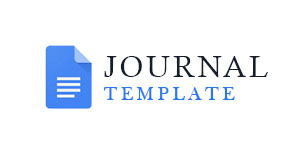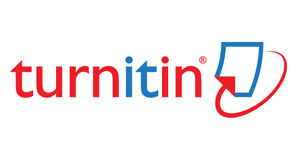Impact of Sea Product Zakat Distribution on The Economy of Coastal Communities (Case Study Fisherman Yogyakarta)
Abstract
Indonesia as one of the largest maritime countries in the world has enormous potential. To overcome this, it is necessary to optimize zakat. In this context, it is necessary to develop seafood zakat products through a productive distribution model so that the potential for community empowerment is realized. The purpose of this study is to identify and develop a distribution model of marine product zakat based on public perception. This research method is qualitative with a comparative study approach. Data collection techniques include observation, documentation, and deep interviews. The object of this research is the coastal communities located on the coast of Depok and the coast of Gunung Kidul, Yogyakarta. The results showed that the zakat on marine products from fishermen was not realized due to the lack of knowledge about the zakat distribution model and there was no collection of zakat funds for marine products. The solution offered by the researcher is to create a model for the distribution of zakat on marine products that will be collected by an organization called the "Network Charity Fishermen" (JAMAN). The JAMAN organization is managed by the Ta'mir of the local mosque so that the implementation of zakat on marine products can be coordinated and the distribution of zakat is realized
Keywords
Full Text:
PDFReferences
Arico, Z., & Jayanti, S. (2017). Processing of Plastic Waste Into Creative Products As an Economic Improvement for Coastal Communities. MARTABE, 1(1), 1–5.
Hayeeharasah, F., Sehvises, S., & Ropha, H. (2013). The Timeline of Zakah. Procedia - Social and Behavioral Sciences, 88, 2–7. https://doi.org/10.1016/j.sbspro.2013.08.474
Iswanaji, C., Zidny, M., Hasbi, N.', Salekhah, F., & Amin, M. (nd). Implementation of the Analytical Networking Process (Anp) Distribution of Zakat on Sustainable Community Economic Development. Tabarru Journal': Islamic Banking and Finance, 4(1), 2021.
John, R. (2015). The Rout led ge C o mp anion to the St udyof Re li gi on Se EC and E-Edition.
July Commander Saragih. (2015). Poverty Alleviation Policy in the Special Region of Yogyakarta (Government Policy to Reduce Poverty in the Special Region of Yogyakarta).
Kasri, RA, & Putri, NIS (2018). Fundraising Strategies to Optimize Zakat Potential in Indonesia: An Exploratory Qualitative Study. Al-Iqtishad: Journal of Islamic Economics, 10(1), 1–24. https://doi.org/10.15408/aiq.v10i1.6191
Monzer Kahf. (1999). The Performance Of The Institution Of Zakah In Theory And Practice.
Muhammad, SV (2009). Indonesia Towards the World Maritime Axis. www.DPR.go.id
Powell, CL (2003). Remarks at the World Economic Forum.
Riwanto, DS (2017). A Comparative Study of the Perception of Coastal Communities in Developing the Method of Distribution of Marine Zakat. In International Journal of Zakat (Vol. 2, Issue 2).
Yusuf Qardawi, D. al. (2013). Kingdom of Saudi Arabia ministry of higher education a comparative study of zakah, regulations, and philosophy in the light of Qur'an and Sunnah.
M. Zidny Nafi 'Hasbi. (2021). Portrait Of Economic Life In The Age Of The Prophet. Al-Mutsla: Journal of Islamic and Social Sciences, 3(1), 1–8.
Hafidhuddin, Didin. 1998. Zakat Infaq Alms. Jakarta: Gema Insani Press Hafidhuddin,
Didin. 2002. Zakat in the Modern Economy. Jakarta: Gema Insani Press.
Huda, Nurul, et al. 2008. Islamic Macroeconomics. Jakarta: PT Fajar Interpratama Mandiri.
Brotherhood, Yusni. 2015. Dig Potency Resource sea Indonesia.
Karim, A Adiwarman. 2007. Islamic Macroeconomics. Jakarta: PT Raja Grafindo Persada.
Kusmantanto, Tridoyo. Empowerment of Marine Resources, Fisheries, and Sea Transportation in the XXI Century.
Mardjoeki. 2012. Empowerment of the north coast community of Cirebon district. Vol 1 no.1.Jurnal Ekonomi ISSN:2302-7169.
Qadir Abdurrachman. 1998. Zakat In Mahdhah And Social Dimensions. Jakarta: PT Raja Grafindo Persada.
Qardawi, Yusuf. 1996. Zakat Law. Literature Between Nusa
Rakhmidyanto. Dan Sinulingga, Wesly. Sustainable Indonesian Maritime Economy. An employee of the Fiscal Policy Agency of the Ministry of Finance.
Rianto, Nur. 2010. Macroeconomic Theory of Islam. Bandung: Alphabeta.
Suhria, Nihayatus. 2010. Income of Fishermen with Potential Zakat. Compiled and submitted to the sharia faculty of Sunan Kalijaga State Islamic University, Yogyakarta.
Chairir Iswanaji, Aziz Muslim, MZNH (2022). Ijarah Collaborative Service Model In Sharia Banking. Indonesian Interdisciplinary Journal of Sharia Economics (IIJSE), 5(2), 702–718.
Syahril, S., Abdullah, W., & Syahruddin, S. (2019). Model of Economic Empowerment with Islamic Philanthropy in Realizing Community Welfare. IQTISHADIA Journal of Islamic Economics & Banking, 6(1), 25-40
Hidayat, S., Wibowo, H., & Doddy, M. (2019). The Impact Of Productive Zakat On The Economic Empowerment Program Based On Social Return On Investments (SROI): Case Study Of PT Karya Masyarakat Mandiri. Journal of Islamic Banking and Economics, 7(1), 79-94.
Fathaniyah, L., & Makhrus, M. (2022). The Role of Zakat Management Organizations in Community Empowerment in Banyumas Regency. Scientific Journal of Islamic Economics, 8(1), 632-640
DOI: https://doi.org/10.24952/tijaroh.v8i2.5854
Refbacks
- There are currently no refbacks.
Copyright (c) 2022 At-tijaroh: Jurnal Ilmu Manajemen dan Bisnis Islam

This work is licensed under a Creative Commons Attribution-ShareAlike 4.0 International License.














